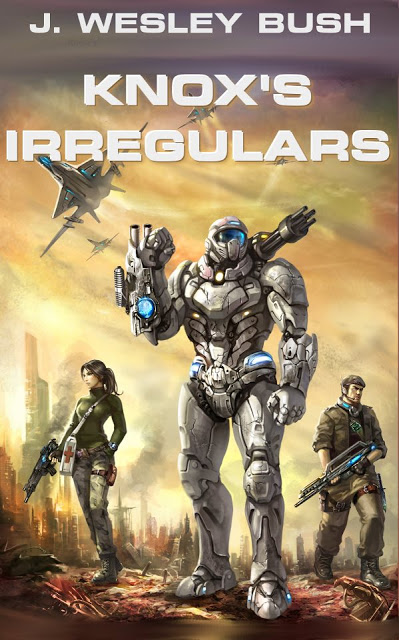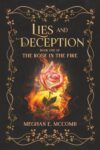
Knox’s Irregulars
“These fanatics aren’t fighting for our land, but for our destruction. They think in slogans and talk in bullets. Such men can’t be reasoned with, only fought . . .”
Randal Knox never wanted to be a leader. But as the firstborn son of the Prime Minister, he seemed fated to a life in politics. Fleeing his family’s plans, Randal enlists with the armored infantry, thinking he’ll be safe on the snowy border with neighboring Abkhenazia.
When followers of the Prophet take control of Abkhenazia, his haven turns to hell. A vast army of zealots invades New Geneva, routing its tiny defense force and sending the remnants fleeing for their lives. Randal is forced to take charge of a small band of survivors, sheltering them in the mountain city of Providence.
With Providence under the iron rule of Colonel Gregor Tsepashin, Randal faces a choice. Will he hide safely in catacombs beneath the city, or embrace his calling? The militia cells are scattered. His only allies are a turncoat Abkhenazi, a mad Belorussian immigrant, a beautiful but green medic, and a handful of armored infantry.
It will take everything he has to lead his people to freedom.
Mr. Bush’s writing is high quality: heart-pounding action is interspersed with the wry humor one would expect from a group of people whose lives are under threat every day. It’s clear that the author has been around the world to experience the full spectrum of humanity. His characters are vivid, easily distinguishable from the inside out, and believable in their diversity, freely slipping into their various native tongues under the influence of strong emotion.
— Reviewer “Benjamin Wisdom” (Amazon.com)






















I’ve read this. Briefly, does the thought of a reformed Calvinist Starship Troopers make you drool? Then this book is for you. Others might not be keen on a world where you have to explain why you are unmarried at age 28 or pay a fine, or where infidelity is a serious mark on your character and even career. It’s good writing though, albeit along the lines of ST.
Perhaps sadly, yes, it does.
Yet now I’m very curious about the explain-if-you’re-still-unmarried-at-age-28. Is this presented as a good idea, a bad one, or just an interesting consequence of a world in which there’s a lot of “Calvinism”? (Myself, I prefer the Reformed label for this, if any.)
Sorry for the massively late reply stephen. I think it was meant to be a good thing, as it’s explained in detail. Another female character’s unwed motherhood is shown as having serious social stigma, to the point where the main character gets ragged on for his interest in her.